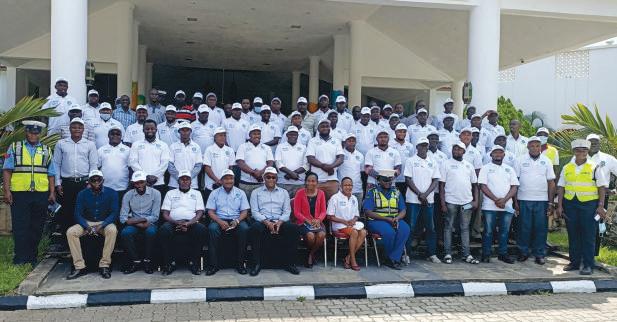THE OUTLAW COAST
Chinese pair trawlers anchored in the harbor of Ulleung Islands in South Korean water (October, 2016)
Off the Coast of South Korea
T
Ian Urbina, is an investigative reporter who writes most often for The New York Times, and is also a contributing writer for The Atlantic[1] and The New Yorker. Urbina is the author of The New York Times bestseller, The Outlaw Ocean based on more than five years of reporting, much of it offshore, exploring lawlessness on the high seas. As a journalist, his investigations typically focus on human rights, worker safety and the environment, and he has received a Pulitzer Prize and a George Polk Award, and has been nominated for an Emmy.
22
AFRICAN SHIPPING REVIEW Oct/Dec 2021
he battered wooden “ghost boats” drift through the Sea of Japan for months, their only cargo the corpses of starved North Korean fishermen whose bodies have been reduced to skeletons. In 2019, more than 150 of these macabre vessels washed ashore in Japan, and there have been more than 500 in the past five years. For years the grisly phenomenon mystified Japanese police, whose best guess was that climate change pushed the squid population further from North Korea, driving the country's desperate fishermen dangerous distances from shore, where they become stranded and die from exposure.
But an investigation conducted by an international team of academic researchers, Ian Urbina a former New York Times investigative reporter who now directs The Outlaw Ocean Project, and Global Fishing Watch, a non-profit organization that specializes in the use of satellite technology and Artificial Intelligence to track illegal activities on the high seas, based on new satellite data has revealed what marine researchers now say is a more likely explanation: China is sending a previously invisible armada of industrial boats to illegally fish in North Korean waters, violently displacing smaller North Korean boats and spearheading a decline in once-abundant squid stocks of more than 70 percent.












